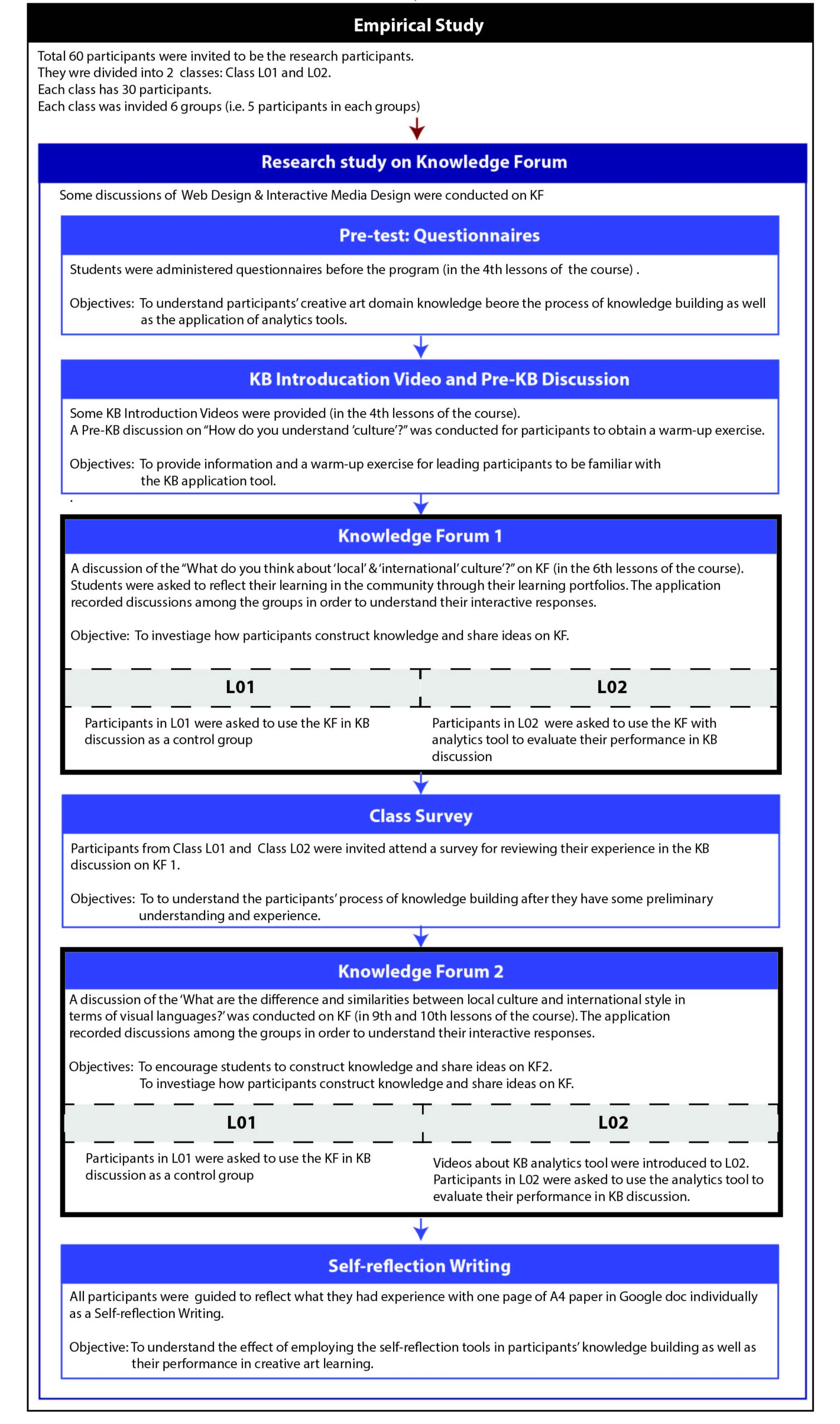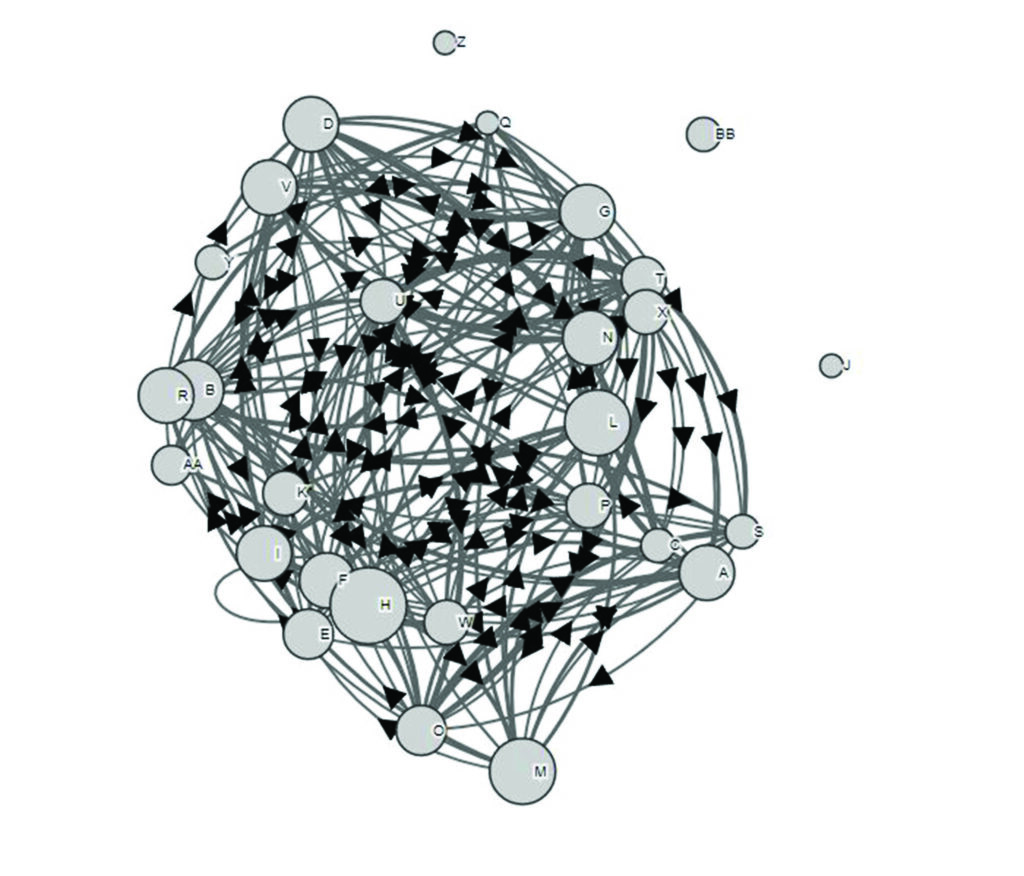The study investigated how knowledge building, art and design knowledge/skills, and reflection skills could be developed using reflective assessment tools by creative art students.
Project Aim & Objective
The aim of the study was to explore how assessment-analytic tools in knowledge building could help creative art students become more metacognitive about their creative processes.
Project Objective
The objective was to investigate how the use of reflective assessment tools can promote knowledge building, art and design knowledge/skills, and reflection skills in creative art students.
Research Method
- The study used a mixed-methods approach.
- Creative art students used knowledge building and reflective assessment tools to support their learning and reflection processes.
- The researchers then collected data through observation, analysis of the reflective assessment tools, and interviews with the students.

Concept Model


in Knowledge Building with An Assessment Tool
Findings
- The findings indicated that knowledge building and reflective assessment tools helped creative art students to develop their metacognitive and reflection skills.
- The students were able to identify their own strengths and weaknesses and were more aware of their learning processes.
- They also developed a deeper understanding of the art and design knowledge and skills required for their projects and optimised their design outcomes.
Result
The study suggests that the use of knowledge-building and reflective assessment tools can be beneficial for creative art students to develop their metacognitive and reflection skills and promote their learning and understanding of art and design knowledge and skills.


Deliverables
Application of Assessment-Analytic Knowledge Building Tools in Collaborative Creative Studies.
HO, A. G. (2021). In: Nazir S., Ahram T. Z., Karwowski W. (eds) Advances in Human Factors in Training, Education, and Learning Sciences. AHFE 2021. Lecture Notes in Networks and Systems, vol 269. Springer, Cham.
https://doi.org/10.1007/978-3-030-80000–0_11
Application of Scaffolds in the Computer-Supported Intentional Learning Environment.
HO, A. G. (2022). In: Nazir S (eds) Training, Education, and Learning Sciences. AHFE (2022) International Conference. AHFE Open Access, vol 59. AHFE International, USA.
http://doi.org/10.54941/ahfe1002376
Funded Sources:
N/A
Project Reference No.:
N/A (MEd Studies)
Period:
01 Jan 2019 – 31 Aug 2020
Funded amount:
N/A
Principal Investigator:
Dr HO Amic Garfield (HKMU)